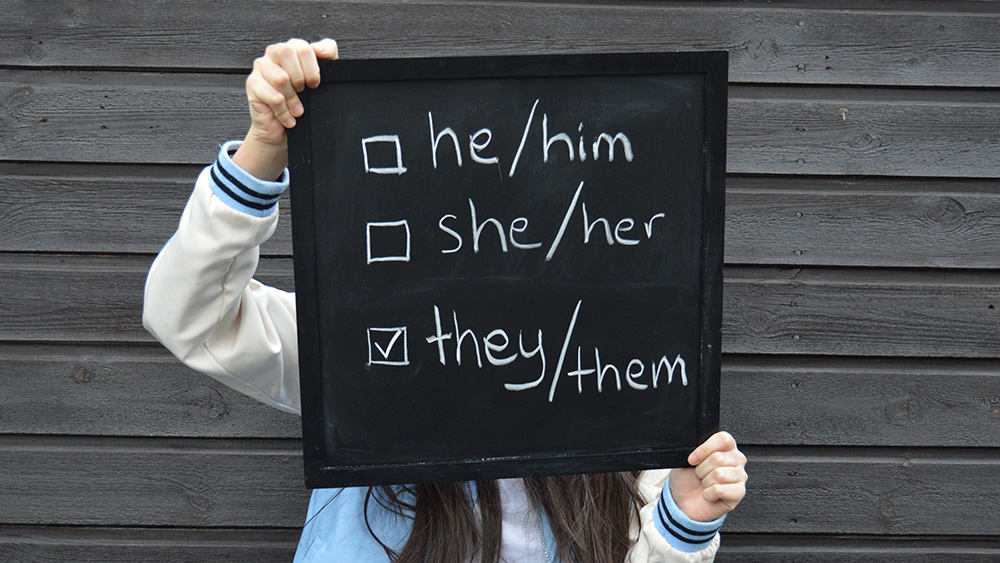 Parler
Parler Gab
Gab
- The U.S. Supreme Court upholds Tennessee’s ban on gender-affirming care for minors, a 6-3 decision in Skrmetti v. United States.
- Over 5,700 American children underwent irreversible medical procedures for gender transition from 2019–2023, per a Do No Harm analysis.
- Advocates describe the ruling as “devastating,” while critics argue the treatments are experimental, nonconsensual and harmful to minors.
- The Overton Window has shifted sharply against transgender medical interventions for youth, with states like California and Pennsylvania seeing the highest rates of treatment.
- De-transitioners and conservative groups stress urgent need for rigorous oversight and parental guardianship of healthcare decisions.
Roots of the debate: How gender-affirming care became a cultural flashpoint
The battle over trans youth care reflects a broader clash between progressive advocacy and traditionalist guardrails on youth autonomy. Less than two decades ago, trans medical care for minors was rarely acknowledged; by 2023, over 14,000 children had received puberty blockers, hormone treatments, or surgeries nationwide, according to a database curated by advocacy group Do No Harm. This surge—from 41 clinics in 2017 to over 300 today—has fueled anxiety about rushed medical decisions and ideological grooming. Activists like transgender advocates argue such care is “lifesaving,” while opponents—including many medical professionals—accuse the trend of being driven by ideological profit and social contagion. Chloe Cole, a de-transitioned teen who sued her doctors for malpractice, notes, “The database proves thousands are being treated as guinea pigs for unproven, dangerous experiments.”The scope of the issue: Data reveals alarming rates of youth intervention
A Do No Harm analysis found that over 5,700 minors underwent irreversible gender-reassignment surgeries from 2019–2023, with costs exceeding $119 million. Leading providers like Philadelphia’s CHOP treated over 3,000 patients, while states like California spent upward of $28 million on such procedures. Dr. Stanley Goldfarb, chair of Do No Harm, warns the reported cases are likely an undercount due to excluded federal and self-paid claims, meaning the true scale of interventions could be far greater. The geographic disparity highlights a stark divide: California, Pennsylvania and New York accounted for nearly half of all surgeries, while states with recent bans now face chaos for families reliant on interstate travel. Tran-youth lawyer Dr. Van Bailey admits, “Families feel ignored, but our community won’t abandon them,” citing travel grants to bypass state restrictions.The human cost: Detransitioners and parents sound alarm
Detransitioners like Cole, who reversed her male-to-female transition at 16, argue that medical practitioners too readily prescribe irreversible surgeries without sufficient psychological screening. “You’re essentially castrating a kid whose brain isn’t even fully formed,” Cole says. Meanwhile, depictions of “trans trenders” in schools and social media—such as teens adopting fluid identities to defy norms—further complicate consent questions. Parental accounts echo these concerns. One Missouri grandmother recounted driving hundreds of miles for hormone treatments post-ban, lamenting, “I can’t afford this, but I’ll do it. I have to.” Critics argue such stories underscore systemic failures in prioritizing biological realities over fleeting ideological whims.Polarized reactions: A deepening divide
The ruling has left Democrats scrambling to distance themselves from transgender activism, which proved politically toxic in the 2024 elections. Left-wing activists decry the decision as authoritarian censorship, while conservatives frame it as commonsense child protection. Procedural safeguards, such as parental consent, are increasingly viewed as ethical non-negotiables. On social media, accusations of “child endangerment” fly both ways: trans allies accuse states of “medical denialism,” while opponents liken puberty blockers to chemical castration. Dr. Erica Anderson, a psychologist, observes a recent “decline in surgeries for minors,” likely due to fear of malpractice suits as detransitioners challenge outcomes.A crossroads for pedagogical ethics and policy
The Supreme Court’s endorsement of state bans signals a definitive break from the era when trans activism overshadowed scientific caution and child welfare. As debates over consent, ethics and morality collide, the Skrmetti decision urges policymakers and physicians to prioritize long-term evidence over ideological trends. The path forward hinges on rigorous, nonpartisan research and safeguards ensuring youth are shielded from high-stakes medical choices—ones they cannot revise—that could permanently alter their lives. As the late Justice John Paul Stevens noted, “Children are not our voters,” but they are the only ones without proxies in this fight for their bodily autonomy. Sources for this article include: ZeroHedge.com USAToday.com NYPost.comGermany’s corporate bankruptcy surge hits decade high amid deepening crisis
By Willow Tohi // Share
Poll: Almost half of U.S. respondents demand reevaluation of CDC vaccine schedule
By Ramon Tomey // Share
Study: Digital addiction among children linked to higher risk of suicidal thoughts
By Ava Grace // Share
The Truman Show Collapses: Reality unveiled as global deception falters
By Finn Heartley // Share
Governments continue to obscure COVID-19 vaccine data amid rising concerns over excess deaths
By patricklewis // Share
Tech giant Microsoft backs EXTINCTION with its support of carbon capture programs
By ramontomeydw // Share
Germany to resume arms exports to Israel despite repeated ceasefire violations
By isabelle // Share










